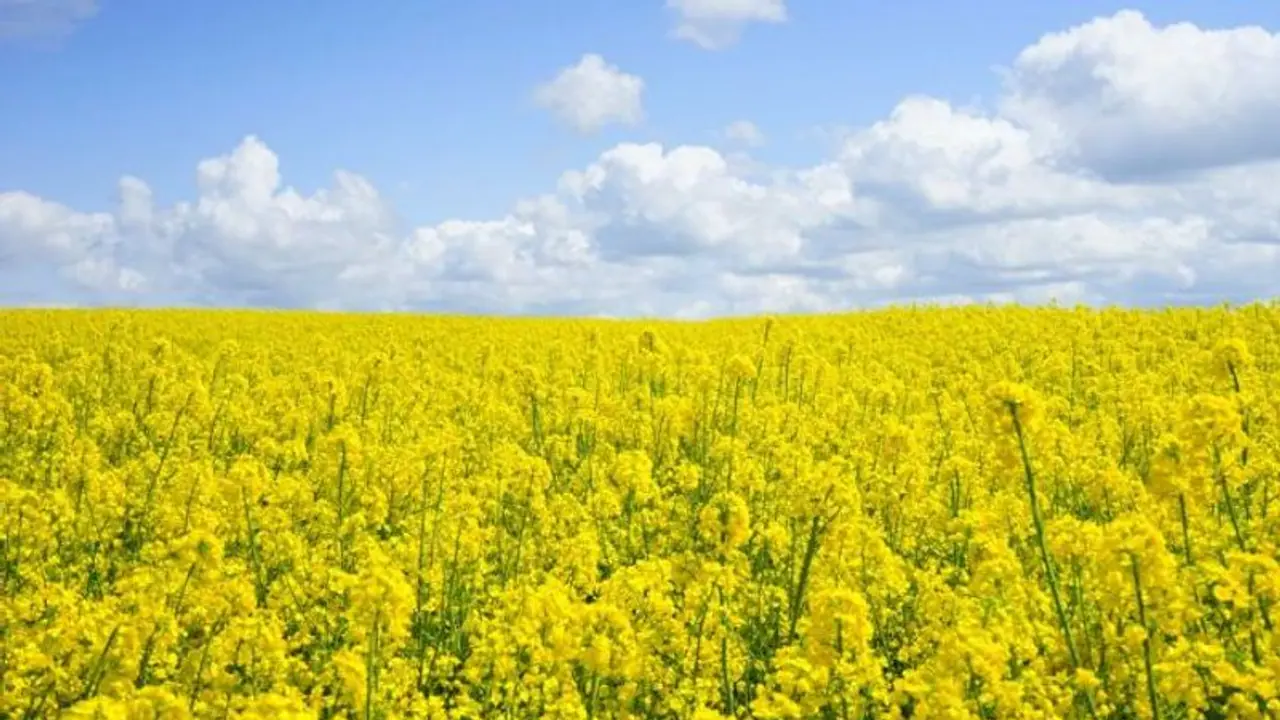The GEAC recommended the environmental release of mustard hybrid DMH-11 for its seed production and testing as per existing ICAR guidelines and other regulations before its commercial release.
India got one step closer to its first genetically-modified food crop with the environment ministry's Genetic Engineering Appraisal Committee (GEAC) recommending the environmental release of the DMH (Dhara Mustard Hybrid)-11.

The DMH (Dhara Mustard Hybrid)-11 is a genetically-modified mustard hybrid developed by a team of scientists from Delhi University as part of a government-funded project.
The GEAC, after due deliberations on the expert committee report and the opinions received from the Department of Biotechnology and the Department of Agricultural Research and Education, recommended the environmental release of mustard hybrid DMH-11 for its seed production and testing as per existing ICAR guidelines and other regulations before its commercial release.
The expert committee report examined evidence about the impact of genetically-modified mustard on honey bees and other pollinators to assess the need to conduct field demonstration studies them. In its report, the committee noted that it seems unlikely that honey bees and other pollinators will be adversely impacted by the bar, barnase, and barstar system. This conclusion was reached based on the assessment of globally-available scientific evidence and as per the concerned ministries' recommendations.
While urging the GEAC to consider the environmental release of GE mustard and further evaluation to be carried out as per ICAR guidelines, the committee, at the same time, suggested that the field demonstration studies with respect to the effect of GE mustard on honey bees and other pollinators may also be conducted post environmental release -- simultaneously by the applicant within two years under ICAR supervision -- to generate scientific evidence in Indian agro-climatic situation and also as a precautionary mechanism.
More about Dhara Mustard Hybrid-11
The National Dairy Development Board (NDDB) and the Delhi University jointly own the patents on GM mustard in which two modified parental lines were crossed to restore male fertility and herbicide tolerance.
To note, around 6 million farmers in Punjab, Haryana, Rajasthan and Madhya Pradesh cultivate Mustard on around seven million hectares of land. However, while the global average yield is up to three tonnes per hectare, in India, the yield is a little over one tonne per hectare. The reason is primarily weed infestation. According to reports, weeds account for up to 30 per cent of crop losses. The Dhara Mustard Hybrid-11 promises to weed out the issue.
However, environmental experts oppose the environmental release of hybrid mustard, stating that it threatens crop biodiversity and endangers food security in the long run.
They claim that enough studies have not been conducted to assess the damage that the hybrid mustard can have on honey bees and pollination. Considering that mustard is pollinated by wind and insects, the entire mustard crop in India could be contaminated if the technology is blindly adopted.
The only other hybrid food variant, BT Brinjal, had been cold storage despite regulatory approval in 2009 by the then United Progressive Alliance government environment minister Jairam Ramesh.
Also Read: India is buying over 2000 drones: There's a 'Himalayan' advantage to gain
